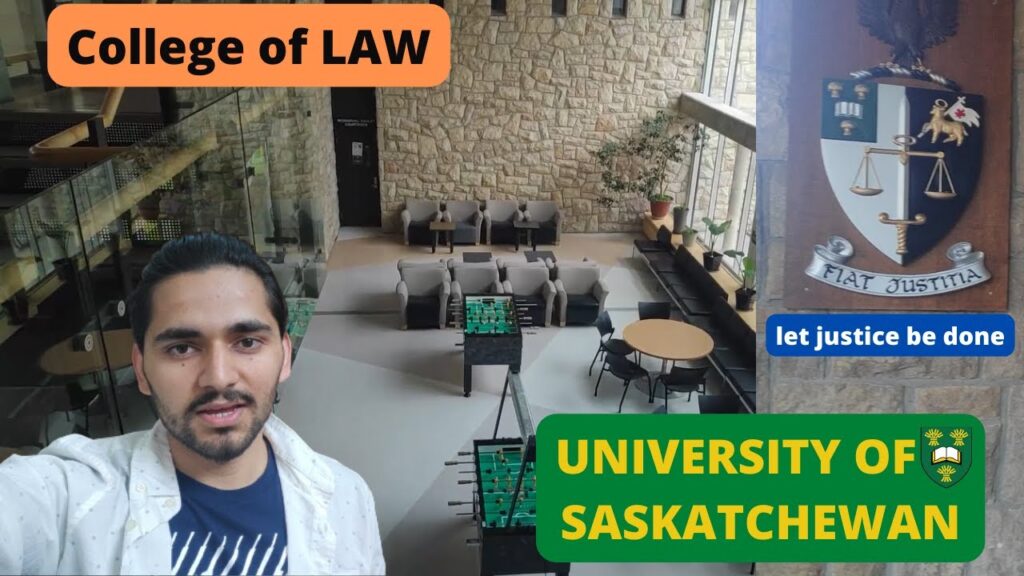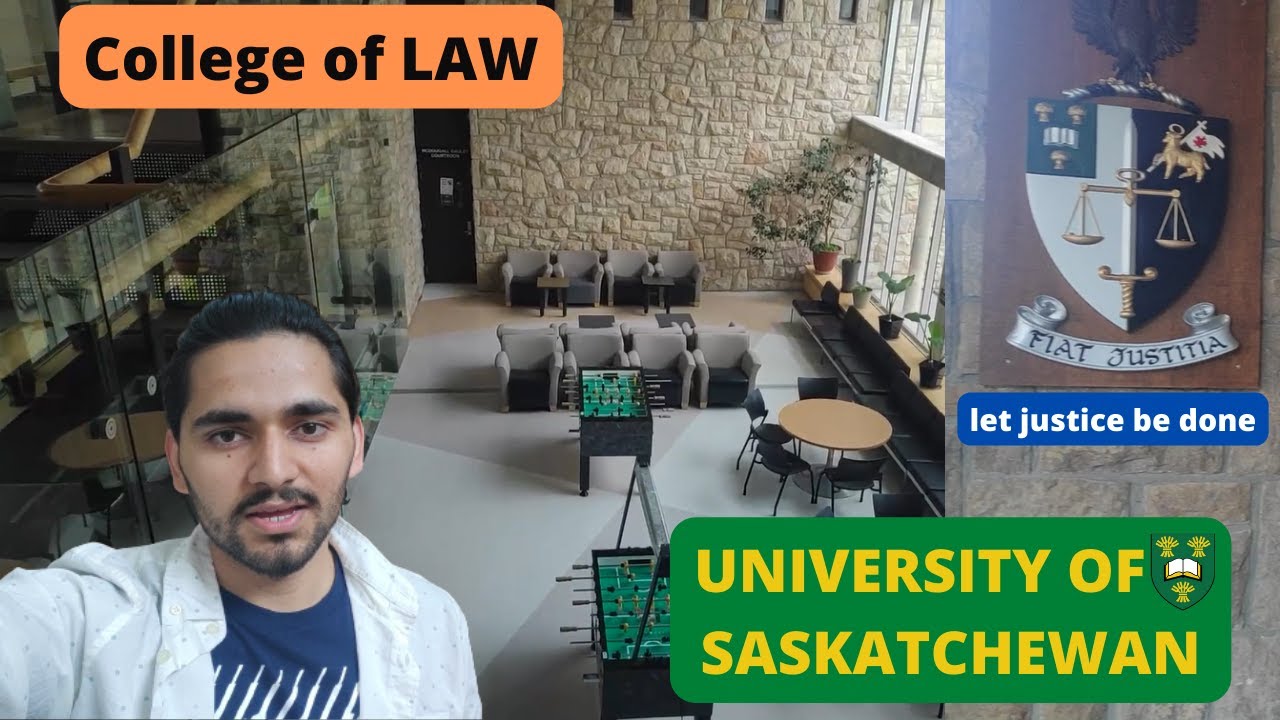
Navigating the Path to Legal Excellence: A Comprehensive Look at the U of Sask Law
The University of Saskatchewan College of Law, often referred to as the U of Sask Law, stands as a pillar of legal education in Canada. For decades, it has been shaping future lawyers, judges, and policymakers, contributing significantly to the legal landscape both regionally and nationally. This article delves into the various aspects of the U of Sask Law, exploring its history, academic programs, faculty, student life, and impact on the legal profession. Understanding the nuances of this institution is crucial for prospective students, alumni, and anyone interested in the evolution of legal education in Canada. The U of Sask Law continues to adapt and innovate, ensuring its graduates are well-prepared to meet the challenges of an ever-changing legal world.
A Historical Overview of the U of Sask Law
The U of Sask Law boasts a rich history, tracing its origins back to the early 20th century. Established in 1912, the College of Law quickly became an integral part of the University of Saskatchewan, reflecting the province’s commitment to legal education and the development of a strong legal framework. Over the years, the U of Sask Law has witnessed significant milestones, including the expansion of its academic programs, the establishment of research centers, and the graduation of numerous influential legal professionals. The college has consistently adapted to the changing needs of the legal profession, incorporating new technologies, pedagogical approaches, and areas of specialization into its curriculum. The U of Sask Law’s historical roots provide a strong foundation for its continued growth and success in the 21st century.
Academic Programs and Specializations at the U of Sask Law
The cornerstone of the U of Sask Law is its Juris Doctor (JD) program, a comprehensive three-year curriculum designed to provide students with a solid foundation in legal theory and practice. The program covers a wide range of subjects, including constitutional law, criminal law, contract law, tort law, and property law. In addition to the core curriculum, the U of Sask Law offers various specializations and elective courses, allowing students to tailor their education to their specific interests and career goals. Some popular areas of specialization include Indigenous law, environmental law, business law, and human rights law. These specialized programs often incorporate practical experience through internships, clinics, and moot court competitions. The U of Sask Law also offers graduate programs, such as the Master of Laws (LLM) and Doctor of Juridical Science (SJD), for students seeking advanced legal education and research opportunities.
The Juris Doctor (JD) Program
The JD program at the U of Sask Law is structured to provide a balanced mix of theoretical knowledge and practical skills. The first year of the program typically focuses on foundational courses, introducing students to the core principles of law and legal reasoning. In the second and third years, students have the opportunity to take elective courses and participate in specialized programs, allowing them to delve deeper into areas of particular interest. The U of Sask Law places a strong emphasis on experiential learning, offering a variety of opportunities for students to apply their knowledge in real-world settings. These include legal clinics, moot court competitions, and internships with law firms, government agencies, and non-profit organizations. The JD program is designed to prepare students for a wide range of legal careers, including private practice, government service, and academia.
Graduate Programs: LLM and SJD
For students seeking advanced legal education, the U of Sask Law offers the Master of Laws (LLM) and Doctor of Juridical Science (SJD) programs. The LLM program is designed for students who wish to specialize in a particular area of law, conduct advanced research, and enhance their academic credentials. The SJD program is a research-intensive doctoral program for students who aspire to become legal scholars and contribute to the development of legal knowledge. Both programs provide students with the opportunity to work closely with leading faculty members, conduct original research, and present their findings at academic conferences. The graduate programs at the U of Sask Law are highly competitive, attracting students from around the world who are committed to advancing the field of law.
Faculty and Research at the U of Sask Law
The U of Sask Law boasts a distinguished faculty comprised of leading scholars, experienced practitioners, and dedicated educators. Faculty members are actively engaged in cutting-edge research across a wide range of legal fields, contributing to the advancement of legal knowledge and informing public policy debates. The U of Sask Law places a strong emphasis on research, providing faculty members with the resources and support they need to conduct impactful studies. The college also hosts various research centers and institutes, which focus on specific areas of law, such as Indigenous law, environmental law, and human rights law. These centers serve as hubs for interdisciplinary research, bringing together scholars from different fields to address complex legal issues. The faculty at the U of Sask Law is committed to providing students with a high-quality legal education, fostering critical thinking, and promoting ethical conduct.
Research Centers and Institutes
The research centers and institutes at the U of Sask Law play a vital role in advancing legal knowledge and addressing pressing social issues. For example, the Native Law Centre is renowned for its work on Indigenous legal issues, promoting Indigenous legal traditions and advocating for the rights of Indigenous peoples. The Centre for Studies in Law and Public Policy conducts research on a wide range of public policy issues, providing evidence-based analysis to inform policy decisions. These centers not only contribute to the academic literature but also engage with policymakers, community organizations, and the public to promote a better understanding of the law and its impact on society. The U of Sask Law’s commitment to research is reflected in its strong reputation as a leading center for legal scholarship in Canada.
Student Life and Opportunities at the U of Sask Law
Student life at the U of Sask Law is vibrant and engaging, offering a wide range of opportunities for students to connect with their peers, develop their skills, and contribute to the community. The college hosts numerous student organizations, including the Law Students’ Association, which represents the interests of law students and organizes social and academic events. Students can also participate in moot court competitions, legal clinics, and pro bono initiatives, gaining practical experience and making a difference in the lives of others. The U of Sask Law also provides students with access to a variety of resources, including academic advising, career counseling, and mental health support. The college is committed to creating a supportive and inclusive environment where all students can thrive.
Moot Court Competitions and Legal Clinics
Moot court competitions and legal clinics are integral components of the U of Sask Law’s experiential learning program. Moot court competitions provide students with the opportunity to hone their advocacy skills by arguing hypothetical cases before a panel of judges. These competitions simulate real-world courtroom settings, allowing students to develop their legal research, writing, and oral advocacy skills. Legal clinics, on the other hand, provide students with the opportunity to represent real clients under the supervision of experienced lawyers. These clinics offer legal services to low-income individuals and marginalized communities, giving students the chance to make a tangible difference in the lives of others. The U of Sask Law’s commitment to experiential learning ensures that its graduates are well-prepared to enter the legal profession.
Career Prospects and Alumni Network
Graduates of the U of Sask Law enjoy excellent career prospects, finding employment in a wide range of legal fields. Many graduates pursue careers in private practice, working for law firms of all sizes. Others choose to work for government agencies, non-profit organizations, or corporations. The U of Sask Law’s strong alumni network provides graduates with valuable connections and support throughout their careers. The college hosts various networking events and career fairs, connecting students with potential employers and mentors. The U of Sask Law’s reputation for producing highly skilled and ethical legal professionals ensures that its graduates are in high demand in the legal job market. The U of Sask Law prepares students well for their careers.
The U of Sask Law and its Impact on the Legal Profession
The U of Sask Law has had a profound impact on the legal profession in Saskatchewan and beyond. Its graduates have gone on to become judges, politicians, business leaders, and community advocates, shaping the legal landscape and contributing to the betterment of society. The U of Sask Law’s commitment to academic excellence, research, and community engagement has made it a leading center for legal education in Canada. The U of Sask Law continues to evolve and adapt to the changing needs of the legal profession, ensuring that its graduates are well-prepared to meet the challenges of the future. The influence of the U of Sask Law extends far beyond the walls of the university, shaping the legal profession and contributing to the development of a more just and equitable society. The U of Sask Law is a vital institution.
In conclusion, the U of Sask Law provides a comprehensive and enriching legal education, preparing students for successful careers in a variety of fields. Its rich history, distinguished faculty, vibrant student life, and strong alumni network make it a leading center for legal education in Canada. The U of Sask Law continues to play a vital role in shaping the legal profession and contributing to the betterment of society. Prospective students seeking a high-quality legal education should seriously consider the U of Sask Law as a top choice.
[See also: University of Saskatchewan Admissions Requirements]
[See also: Canadian Law Schools Ranking]
[See also: Tips for Law School Applications]

